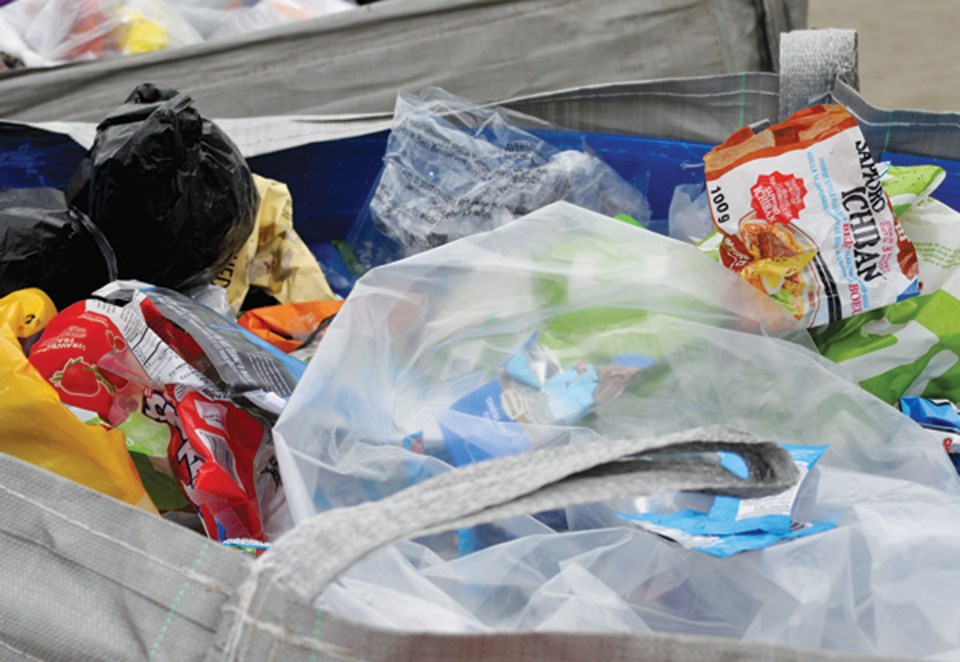A new global poll has found widespread support to curb the production of plastics and negotiate a treaty that would force governments and corporations to move away from single-use products.
The survey, carried out by Censuswide on commission from the environmental group Greenpeace, asked seven questions to 19,088 people from across 19 countries. In the Americas, those countries included Canada, the U.S., Mexico, and Brazil; in Europe, residents of the U.K., Germany, Austria and Norway took part; citizens of Egypt and South Africa made up the sample from Africa; and a vast array of people from India, Philippines, Indonesia, Japan, Thailand, South Korea, China, Malaysia and the United Arab Emirates were polled across Asia.
“The polling results from Canada and around the world reflect what we’re seeing and hearing in our communities — people want bold action to end the plastic crisis once and for all,” said Sarah King, Greenpeace Canada’s head of oceans and plastics campaigns.
The pollsters said their most significant finding was that 82 per cent of respondents agree that to stop plastic pollution requires cutting plastic production.
Another eight out of 10 people polled said they would back a Global Plastics Treaty in order to halt the destruction of nature and limit global warming to 1.5 degrees Celsius — the temperature threshold countries have agreed to in order to evade serious fallout from climate change.
Ninety per cent of those surveyed said they believe a Global Plastics Treaty should include targets that oblige governments and corporations to transition away from single-use plastics.
A further eight in 10 respondents said they would be more likely to use reusable packaging if it was more convenient and cheaper, while 60 per cent said lobbyists from fossil fuel and chemical industries shouldn’t be allowed to take part in the negotiation of a Global Plastics Treaty.
Big gaps between rich and developing countries
Stark differences emerged between countries that have strong plastic waste management systems and those that don’t.
Like many other affluent countries, the number of Canadians who expressed concern over the adverse impacts of plastic was lower than the global average, and far below several developing countries — many of which receive large volumes of plastic waste from places like Canada and the U.S.
Respondents from countries like the Philippines, China, Mexico and Thailand backed some of the strongest potential measures to curb plastic pollution. In each of those countries, a strong majority backed cutting plastic production to stop plastic pollution.
The poll found that countries that tended to export plastic waste — like Canada, the U.S. and Japan — were less likely to support stringent measures to control plastic pollution.
Greenpeace, which backed the survey, is calling on countries to negotiate a 75 per cent cut in global plastic production by 2040.
The World Plastics Council, which describes itself as “the voice of the global industry,” says it would back the creation of a global plastics agreement. In an August 2023 , the global industry group said efforts should be focused on better waste management, eliminating plastic from leaking into the ocean and promoting recycling.
The document also suggested plastic producers should look to reduce their dependence on “fossil feedstocks.” It did not, however, mention cutting the global production of plastics.
Poll released ahead of Canada-hosted negotiations for a global treaty
In 2022, the U.N. Environment Assembly committed to creating a legally binding agreement to end plastic pollution, and gave themselves a two-year window to negotiate the terms of the agreement.
At the end of April, 173 countries will meet in Ottawa to negotiate a Global Plastics Treaty under the auspices of the United Nations Environment Programme’s Fourth Intergovernmental Negotiating Committee (INC-4).
Ahead of the meeting, Canada’s federal government and four other members of a (other members include France, Norway, Kenya and South Korea) issued a call to action, citing a $2.5-trillion annual toll plastics are having on the world’s economy, people and nature.
“We produce more than 450 million tonnes of plastic waste every year, and plastic pollution in aquatic ecosystems is expected to triple by 2040,” noted a statement from the alliance in February.
“Business-as-usual growth in plastics would burn through a projected 20 per cent of the carbon budget for 1.5 degrees Celsius by 2040.”
Steven Guilbeault, Canada’s minister of environment and climate change, said the alliance is looking to finalize negotiations at the end of 2024 when talks will conclude in Busan, South Korea.
Sangjun Lim, the Republic of Korea’s vice-minister of environment, said in a statement at the time he hoped to see the legally binding instrument to end plastic pollution wrap up in November.
“Even now, as we speak, plastic pollution is spilling into the environment, seriously affecting our planet. We need to act now,” Lim said.






